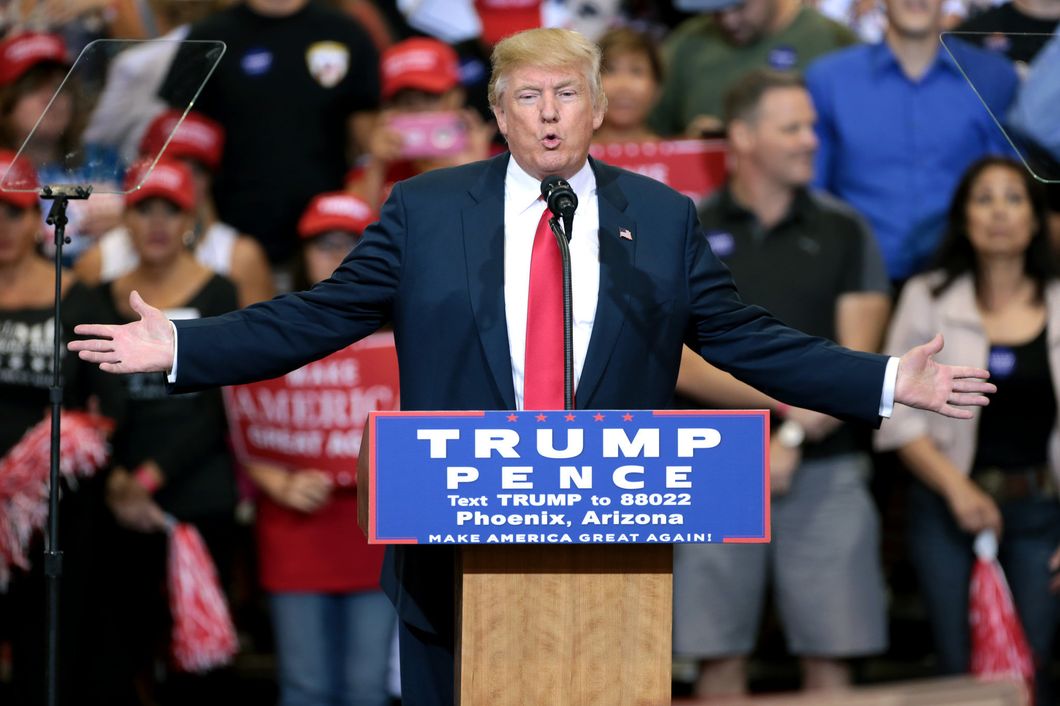To be a Democrat in the summer and fall of 2016 was to feel like the world was made.
Hillary Clinton was going to be president. Her opponent, Donald Trump, was uniquely unqualified and hated nearly universally after calling immigrants criminal rapists and bragging about sexually assaulting women. Congress was going to flip Democratic, and policies crafted during Barack Obama's administration would be preserved or expanded. If Merrick Garland was not going to be confirmed to the Supreme Court, it was only because President Clinton had withdrawn his nomination and replaced him with a more liberal judge. Several journalists had begun writing obituaries for the Grand Old Party.
Obviously, none of that happened.
In one of the biggest upsets in American history, Trump won the election (though not the most votes) and Congress remained under Republican control. The Affordable Care Act that Obama had championed was nearly repealed and has been under regulatory attack. The Deferred Action for Childhood Arrivals program, an executive order issued by Obama that gave quasi-legal status to unaccompanied minors who enter the country illegally, and the Joint Comprehensive Plan of Action that alleviated sanctions on Iran in exchange for the scaling-back of its nuclear program have both been punted to Congress, which has simply been too busy doing nothing to act on either.
Two years later, what have Democrats learned from the last election?
President Trump is still unpopular, like he was as a candidate, and Americans dislike policies that were on the agenda last year.
The ACA repeal was deeply and comprehensively unpopular, with as many as 61% of Americans opposed to repeal. The tax overhaul that Republicans in Congress thought would prove their concern for the little guy was derided as a handout to the rich. The Trump administration's disastrous zero-tolerance immigration means that, in practice, children are separated from their parents when they enter the country illegally; human rights abuses against children do not play well on TV.
As a result of Trump's unpopularity, the Democratic party is exactly where it was in 2016: over-optimistic, over-confident and woefully under-resourced.
The Democratic National Committee has about $100 million less than its Republican counterpart, not to mention $5 million in debt (its Senate campaign arm has an additional $4 million). Nevertheless, journalists have fired up their GOP obituaries, again.
Democrats consistently out-poll Republicans on the generic ballot, a measure of voting intention by party only. But their numbers are only in the high single digits, and the generic ballot is a weak measure of electoral chances. The Economist has a robust model for predicting the results of the midterm elections that predicts Democrats have a 70% chance of winning a majority in the House of Representatives. But Clinton had as much of an 89% chance of becoming president, according to FiveThirtyEight.
Still, Democratic campaigns across the country have reason to be hopeful. The halfway mark for primaries is Tuesday, and Democratic voters appear to be choosing moderate, winning candidates over more radical opponents. They seem to have learned from the 2010 Tea Party wave, in which Republicans nominated deeply conservative candidates who failed to appeal to moderates. The Democratic candidate for Senate in Nevada, Jackie Rosen, a former synagogue president who touts her support for "smart and tough foreign policy" and "working to cut red tape and increase accountability" at the Department of Veterans' Affairs on her campaign website, along with promoting equal pay for equal work for women. In 2010, Republicans nominated Sharron Angle, whose campaign had a code phrase, "it's time to water the plants," for when a media representative entered the office, to run against then-Senate Majority Leader Harry Reid.
Midterms are always seen as a referendum on a president's job, the 2018 elections especially so.
In 2010, Republicans responded to President Barack Obama's moderate reformism with radical reactionaries who largely objected to the recently-passed ACA (and, some have speculated, to the nation's first black president). This year, Democrats are rising to meet President Trump's protectionist instincts with free traders, his illiberalism with candidates committed to democratic institutions and his derogation for women with, notably, women. 2018 has been the year of the female candidate, with women of both parties running for and winning nominations for Congress and governor.
Still, all these factors are matters of enthusiasm, not results.
Having a candidate to rally around is important, but equally or more important is resources. To win the House of Representatives and, with luck, the Senate, Democratic candidates have to encourage voters to call voters and knock on doors, the old-fashioned way to campaign before everything went digital. Elections are not won on TV and Twitter; voters need to hear about candidates in their homes, in person and over the phone. Direct campaigning is the most effective way to win.
Democrats will need to remember this come November.






















